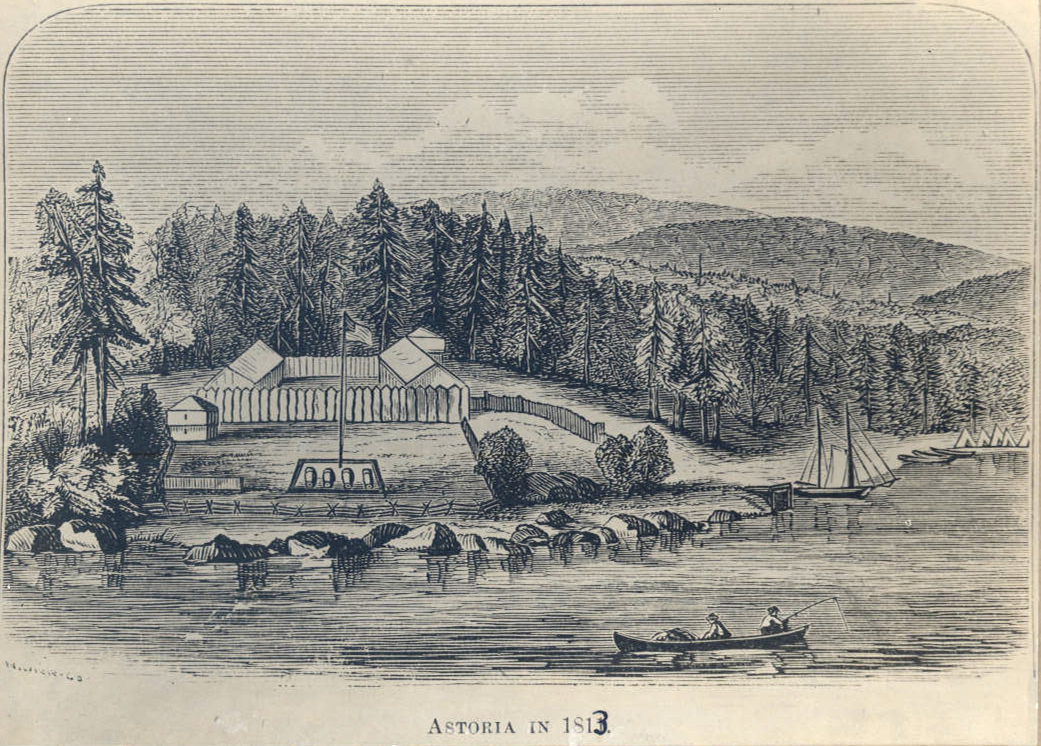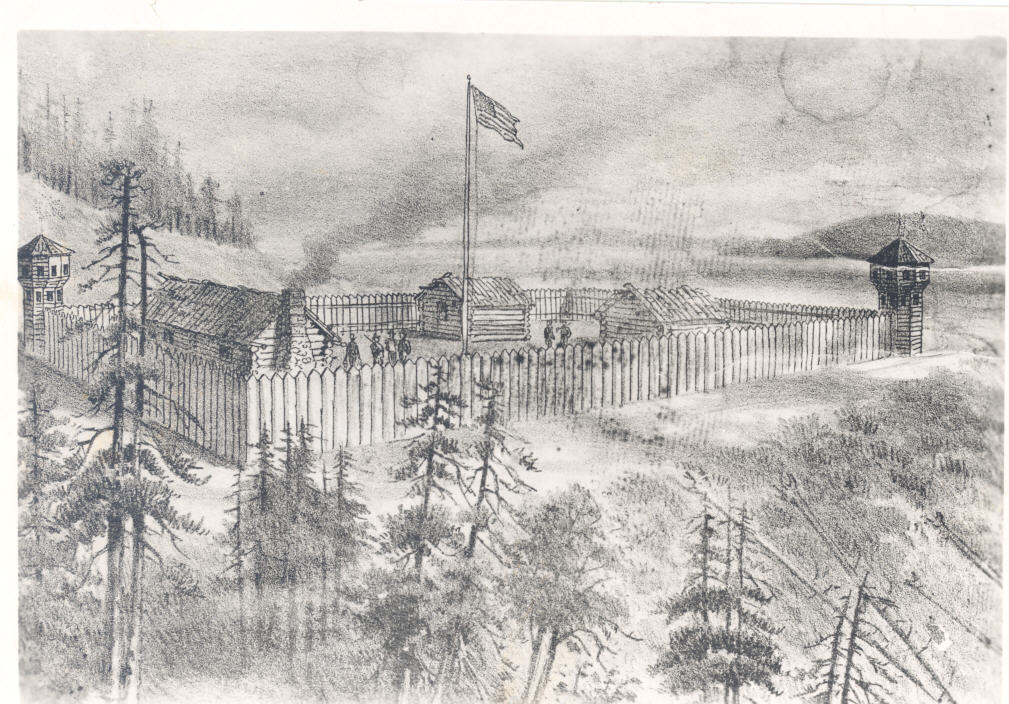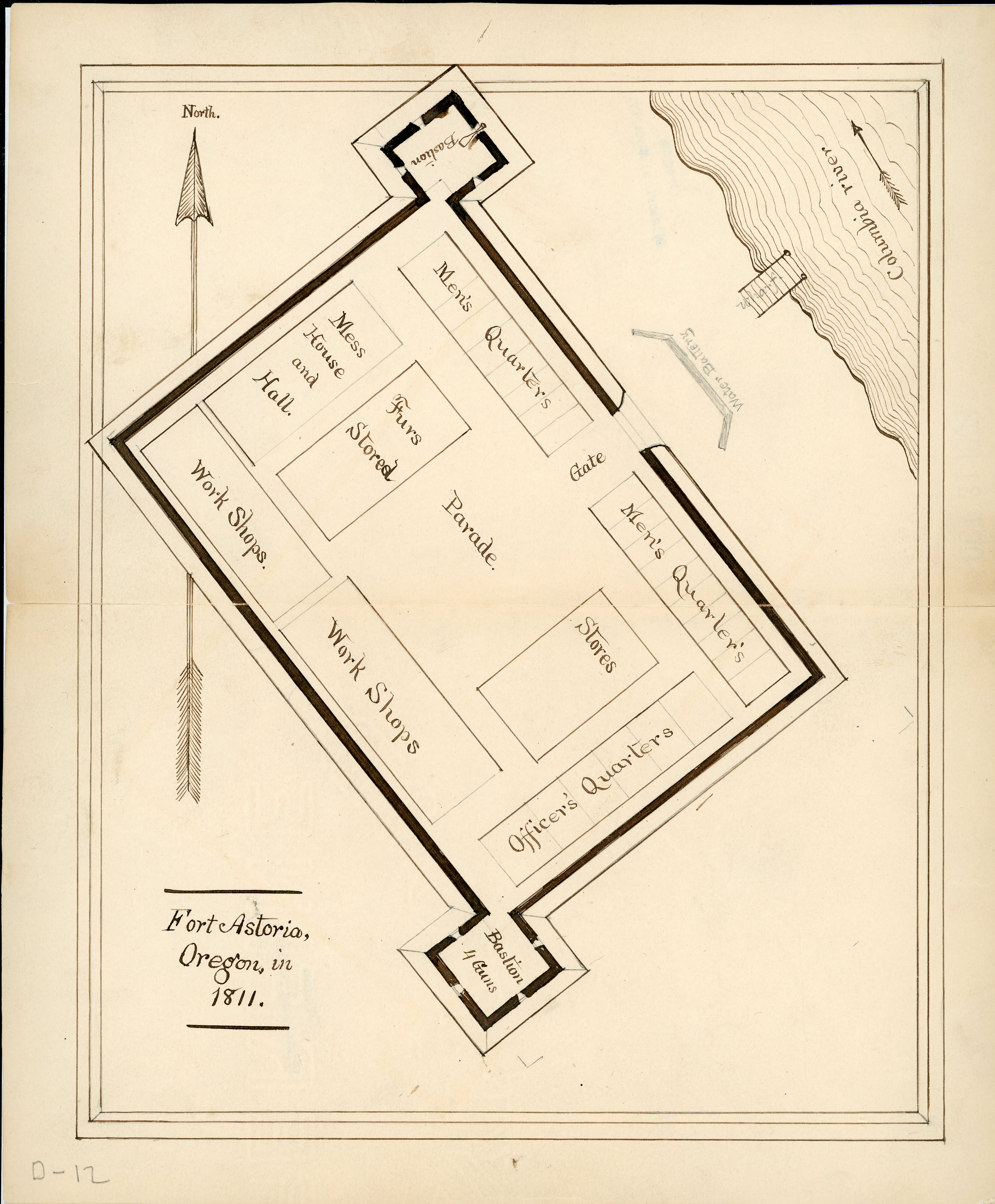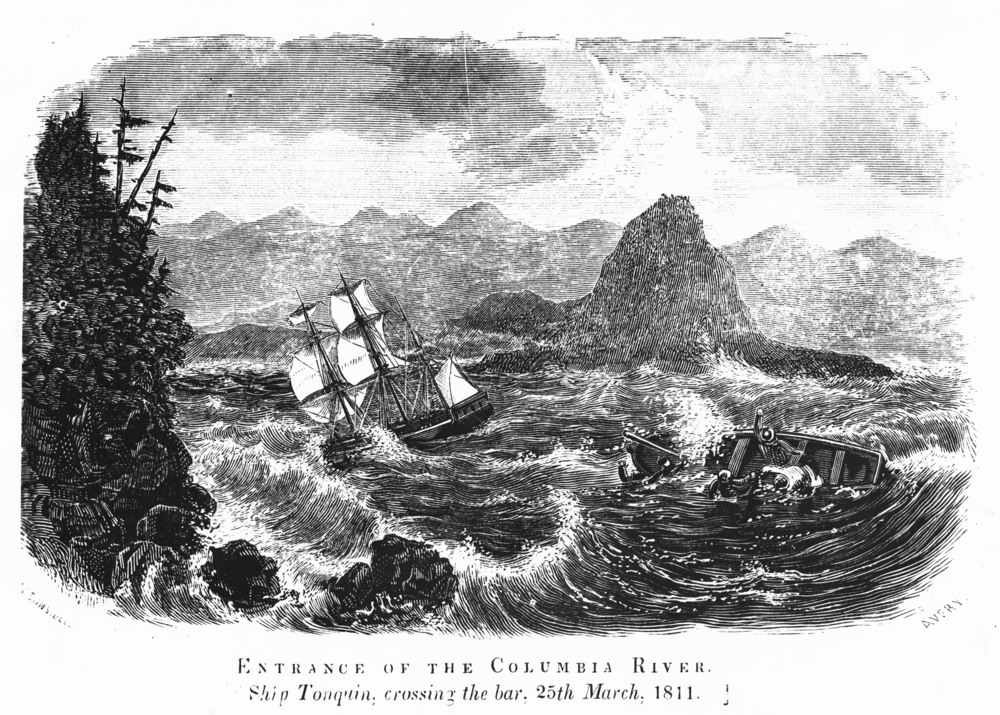In 1809, John Jacob Astor selected Wilson Price Hunt to be his St. Louis agent for a new enterprise—the Pacific Fur Company—and to lead an overland expedition to establish a fur post at the mouth of the Columbia River.
Hunt was born at Asbury, New Jersey, in 1783. He pursued business as a young man, finding his way to St. Louis in 1804. Eager to be part of the expansive fur trade, he was motivated by information from traders and returning members of the Lewis and Clark expedition. By 1809, he became a partner, along with Canadian fur traders, in Astor’s new enterprise; he received five shares.
Astor had devised two expeditions to the mouth of the Columbia, one by sea on the Tonquin, the other by land from St. Louis. He had designated Hunt the manager of affairs at the new post, Astoria, but that duty would fall to partner Duncan McDougall in June 1812, when Hunt began his voyages for Astor in search of Pacific coastal trade.
Hunt was not experienced in wilderness travel, but Astor selected him to lead the overland expedition because of his business acumen and his American citizenship. Hunt’s party included sixty men, most of them Americans. Leaving St. Louis in October 1810, the men canoed some 450 miles up the Missouri River to the Aricara villages, where they headed west on horses and by foot. Hunt’s leadership and diplomatic skills frequently protected his party in encounters with Indians.
During the summer of 1811, the group struggled at a slow pace in the face of difficult river and mountain passages. By late September, they had reached the headwaters of the Snake River in present-day Idaho, where they descended in canoes for 200 miles through savage rapids. The party’s boats were swamped and wrecked, and they lost food and supplies. Hunt decided to divide his force, each contingent to find its way to the Columbia River and descend to Astoria. Hunt and thirty men finally made it to Astoria on February 12, 1812, where they found Donald Mackenzie and ten other overlanders already there. Eventually, fifty-four members of the Hunt party arrived in safety.
After five months at Astoria, Hunt sailed on Astor’s supply ship, the Beaver, to Russian Sitka in the North Pacific to promote trade between the Russian America Company and the Pacific Fur Company. Stranded in the Hawaiian Islands by the War of 1812, he returned to Astoria briefly in August 1813 on the ship Albatross. There he was astonished to learn of the partners’ plan to abandon the establishment.
After his last return to Astoria on the Pedlar in February 1814, Hunt learned about the final sale of Astoria to the Canadian-based Northwest Company. The partners abandoned Astoria because of the threat from armed British vessels on the coast, the competition from nearby Canadian Nor’wester outposts, and changing market conditions.
Hunt returned to New York in 1816 with a cargo of silks, porcelain, and teas for Astor, who remained a close friend throughout the rest of his life. In 1817, he settled on a thousand acres of land near St. Louis, where he lived until death came on April 13, 1842.
-
![Earliest known illustration of Fort Astoria, by Gabriel Franchere, employed by Astor,]()
Fort Astoria, 1813.
Earliest known illustration of Fort Astoria, by Gabriel Franchere, employed by Astor, Courtesy Oreg. Hist. Soc. Research Library, OrHi51
-
![From the West Shore Magazine, 1890]()
Fort Astoria.
From the West Shore Magazine, 1890 Courtesy Oreg. Hist. Soc. Research Library, Orhi691
-
![]()
Fort Astor replica built for Astoria Centennial, 1911.
Courtesy Oregon Hist. Soc. Research Lib., 017250
-
![]()
Fort Astoria map, 1811.
Courtesy Oregon Hist. Soc. Research Lib., OrHi99387
Related Entries
-
![Astor Expedition (1810-1813)]()
Astor Expedition (1810-1813)
The Astor Expedition was a grand, two-pronged mission, involving scores…
-
![John Jacob Astor (1763-1848)]()
John Jacob Astor (1763-1848)
John Jacob Astor never visited Oregon or the Pacific Northwest, but his…
-
![Marie Dorion (1790?–1850)]()
Marie Dorion (1790?–1850)
A woman of Sioux and, more particularly, Iowa descent, Marie Dorion, by…
-
![Pacific Fur Company]()
Pacific Fur Company
The Pacific Fur Company, employee Alexander Ross wrote in 1849, was “an…
-
![Tonquin (ship)]()
Tonquin (ship)
The Tonquin, built in 1807, was described by Edmund Fanning, its builde…
Related Historical Records
Map This on the Oregon History WayFinder
The Oregon History Wayfinder is an interactive map that identifies significant places, people, and events in Oregon history.
Further Reading
Brandon, William. “Wilson Price Hunt.” In The Mountain Men and the Fur Trade of the Far West Vol. 6, edited by LeRoy R. Hafen, 185-206. Glendale, Calif.: Arthur H. Clark, 1962-75.
Hunt, Wilson Price. The Overland Diary of Wilson Price Hunt. Translated by Hoyt C. Franchere. Ashland, Ore.: The Oregon Book Society, 1973.
Irving, Washington (edited and introduction by Edgeley W. Todd). Astoria, or Anecdotes of an Enterprise Beyond the Rocky Mountains. Norman: University of Oklahoma Press, 1964.
Ronda, James P. Astoria & Empire. Lincoln: University of Nebraska Press, 1990.






